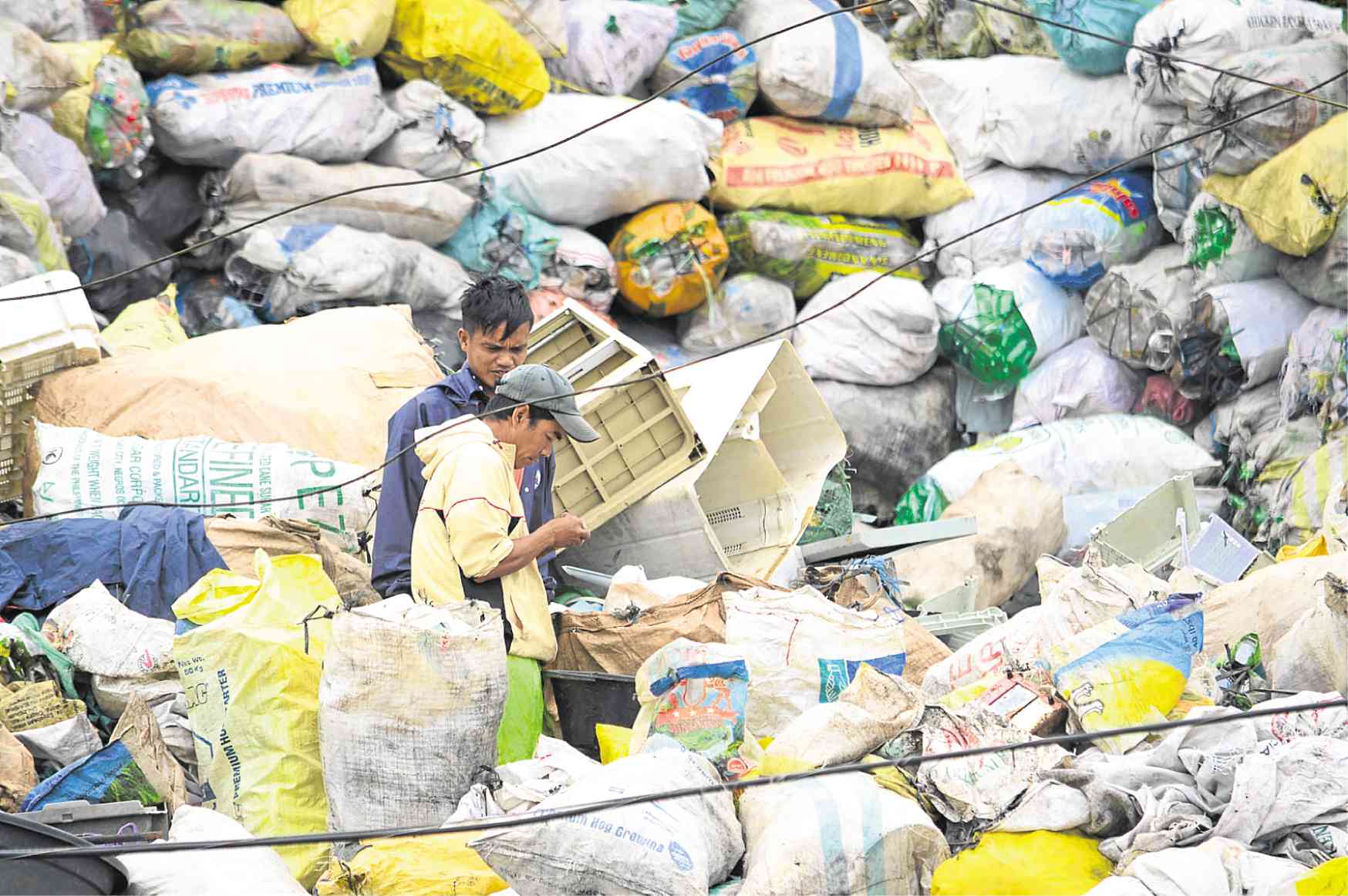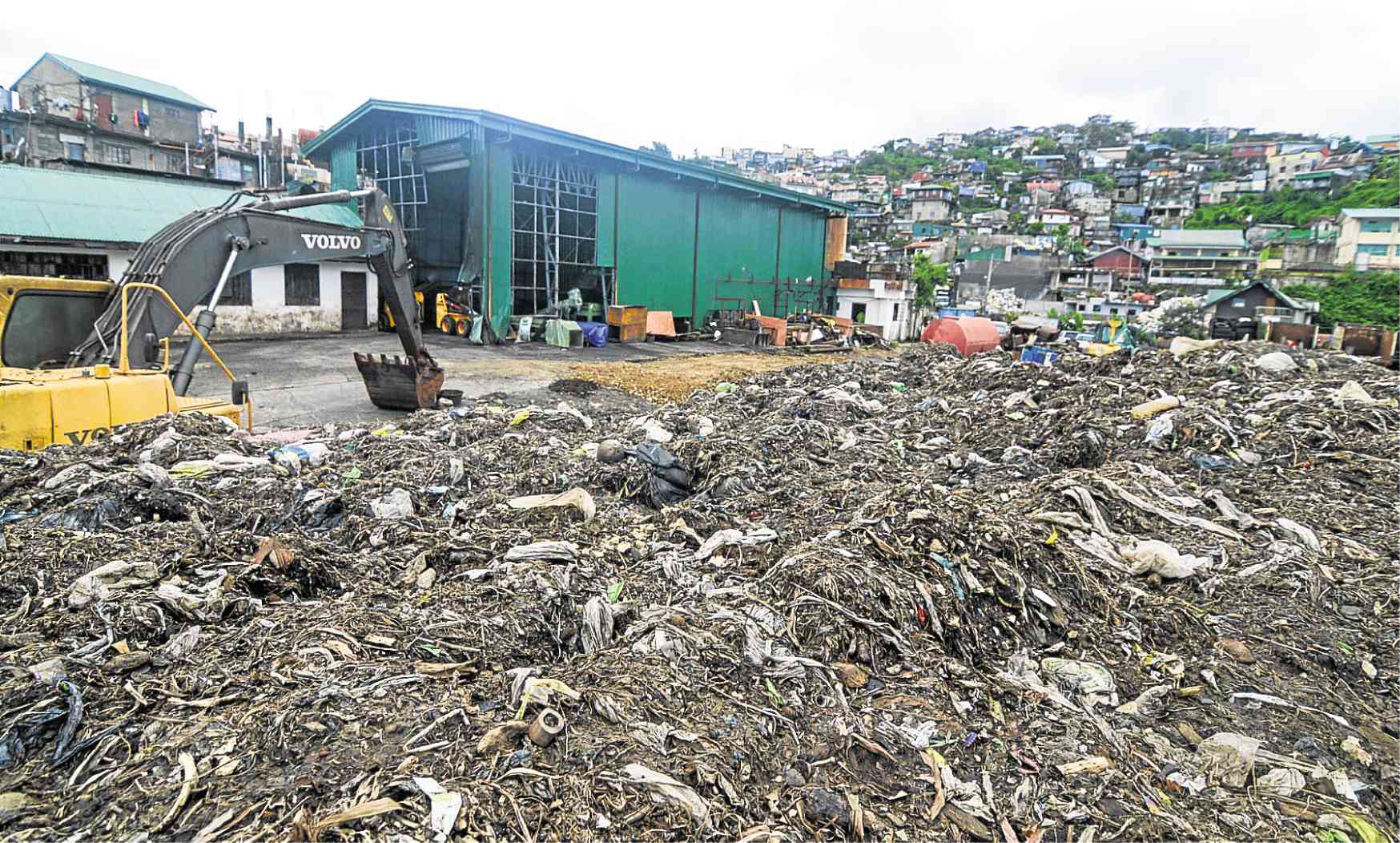In Baguio, 3-month dump cleanup starts

RELOCATION Junk shops surrounding Irisan dump in Baguio City are expected to relocate once the local government starts clearing the area and turning it into an ecological park. —PHOTO BY KARLSTON LAPNITEN
BAGUIO CITY, Benguet, Philippines —About 30,000 metric tons of biodegradable waste that had accumulated at the decommissioned Irisan dump here would be gone within three months after Mayor Benjamin Magalong ordered city officials to convert the area into an ecological park.
Magalong started his first days in office dealing with accumulated trash after garbage trucks stopped collecting organic waste due to the shutdown of the city’s two waste-to-fertilizer machines on June 27.
On Tuesday, Magalong spent his day inside the Irisan dump, presiding over meetings with his department heads and local village officials.
“This will be a sort of showcase that we mean business. If we can do it here, anything we can do everywhere,” said Magalong, whose campaign was grounded on revitalizing Baguio.
Garbage crisis
The rehabilitation also includes closing at least seven junk shops operating near the facility.
Baguio was nearly plunged into a garbage crisis after the Department of Environment and Natural Resources (DENR) stopped the machines’ operations and suspended the hauling of biodegradable waste to Irisan.
Ralph Pablo, DENR Cordillera director, on Monday issued an order allowing the city to resume its solid waste operations provided City Hall processed all organic garbage stored at the dump and hauled out unprocessed compost.

REHABILITATION Around 30,000 metric tons of solid waste that remained at the decommissioned Irisan dump will be processed into fertilizer as part of the area’s rehabilitation. —PHOTO BY KARLSTON LAPNITEN
A lot of work, prayers
Baguio generates 50 MT of biodegradable waste in a day, according to a waste assessment and characterization survey.
Processing the trash at Irisan—and not counting the daily delivery of fresh waste—
within three months will need “a lot of work and prayers,” said Rapport Innovations chair, Rod Guerrero.
Rapport took over the operations of the dump in May this year under a five-year contract with the city government.
“We initially estimated at least two years to clean up this pile but the mayor wanted to clean it [as soon as possible]. We will help,” Guerrero said.
To do this, he said they would transfer their operations from Tarlac to this city and bring in “as much machinery as the area can accommodate.”
With the equipment, they can process at least 50 MT tons of waste daily, he said, adding that the city-owned environmental recovery system (ERS) machines can process at least 40 tons daily.
In June, experts from Adamson University and the Department of Science and Technology learned that one of two ERS machines had malfunctioned because of poor maintenance.
Magalong said Rapport can have it repaired and made fully operational this month.
Collapse
The city has been using the Irisan dump since 1972. In 2011, six people, including two children, died after the retaining wall of the dump collapsed, burying houses below with trash.
In 2012, the Court of Appeals granted a writ of kalikasan and a writ of continuing mandamus against the city government to permanently close the area.
Magalong said the solution to Baguio’s waste problem could be resolved by waste-to-energy systems. He said the city will be one of the two recipients of a waste-to-energy technology from Japan.
The city spends at least P70 million annually to haul garbage to sanitary landfills in Tarlac and Pangasinan provinces.